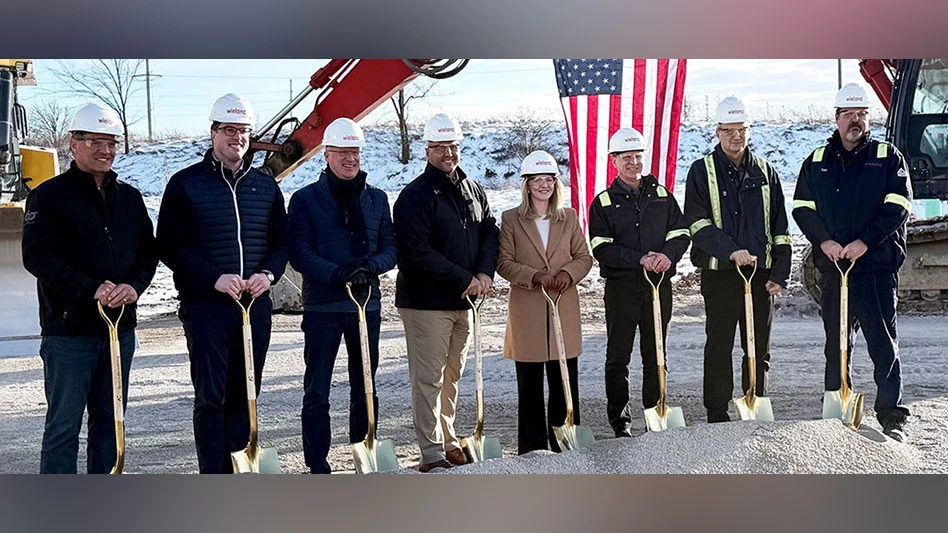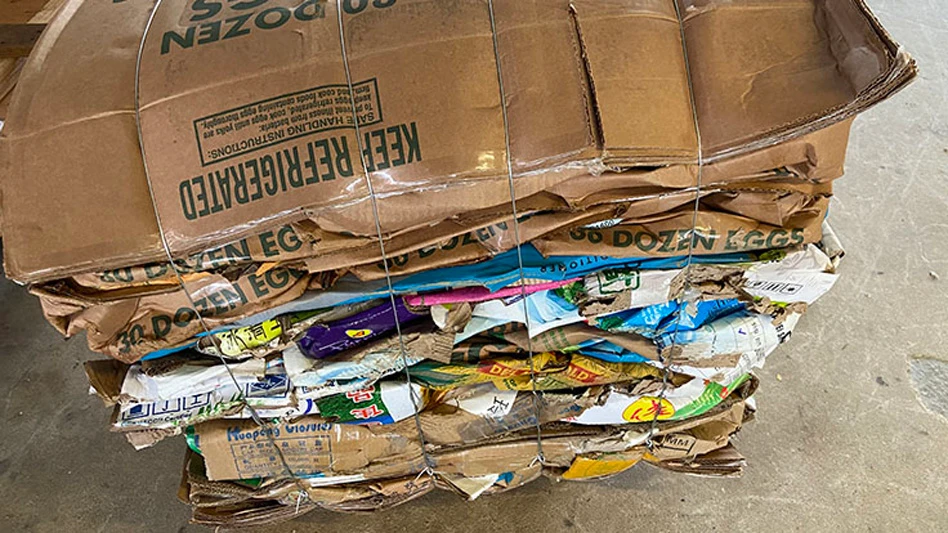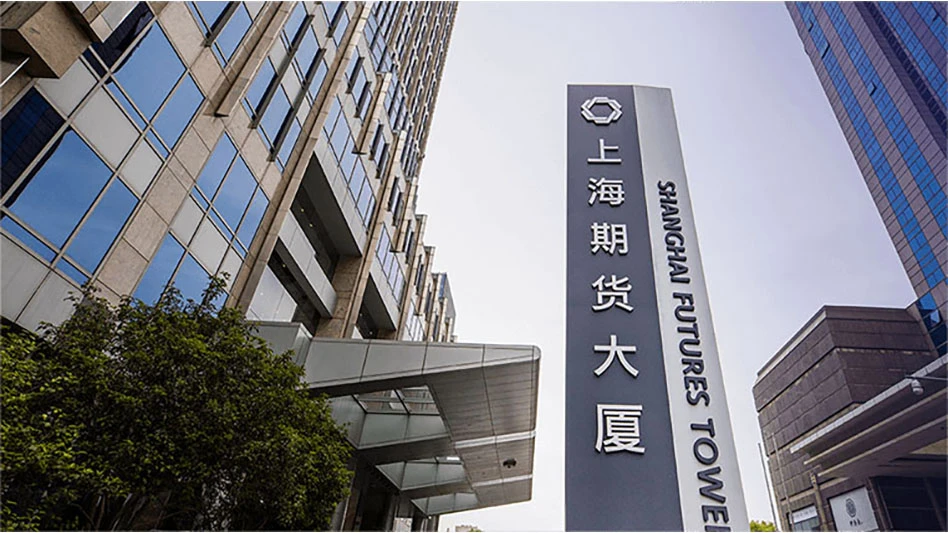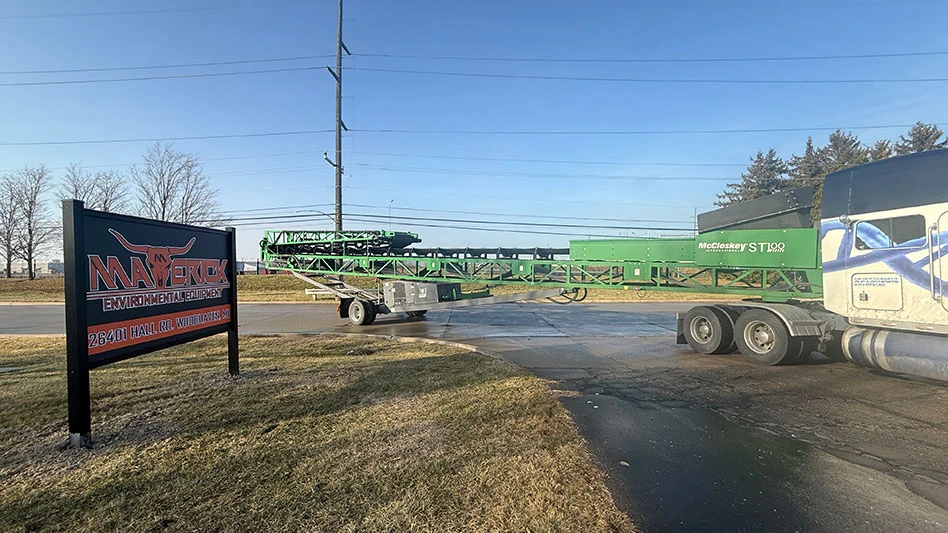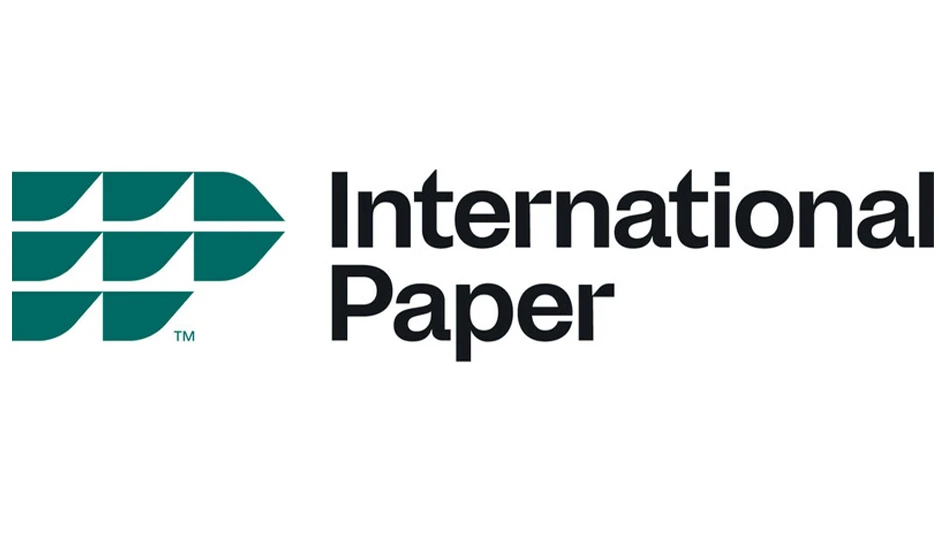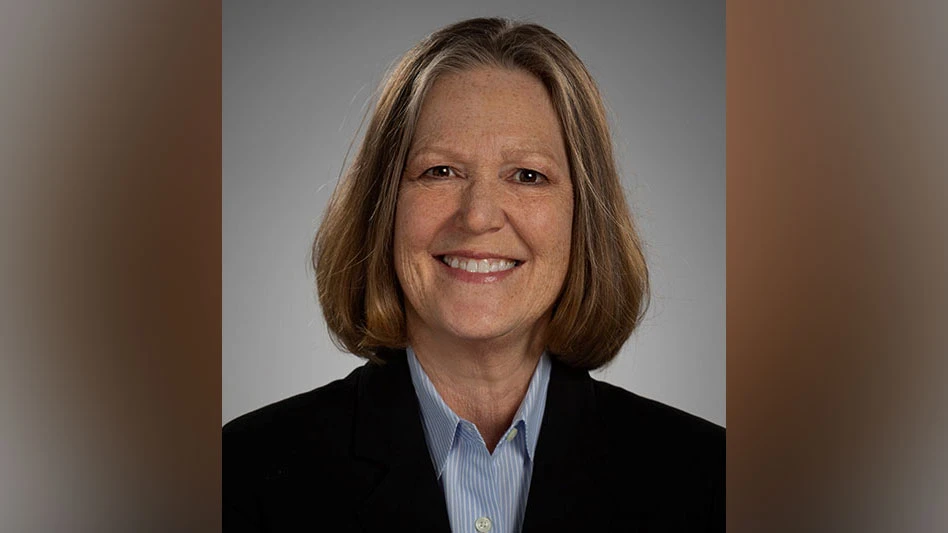
Plastics
Eastman loses $375M DOE grant for Texas plastics recycling facility
Following a U.S. Department of Energy (DOE) review, specialty materials company Eastman lost a $375 million grant it had been awarded in March 2024 to help cover the costs of building its second U.S. molecular recycling facility for plastics—a $1.2 billion project—in Longview, Texas, where the company has maintained operations for decades.
Eastman, based in Kingsport, Tennessee, was set to receive funding through the Bipartisan Infrastructure Law and Inflation Reduction Act, via the Office of Clean Energy Demonstrations. On May 30, U.S. Secretary of Energy Chris Wright announced the termination of 24 awards, totaling more than $3.7 billion, issued by the office.
In a news release announcing the funding cuts, Wright says that of the 24 awards canceled, nearly 70 percent were signed by the Biden administration between Election Day and Jan. 20 and primarily included funding for carbon capture and sequestration and decarbonization initiatives.
“While the previous administration failed to conduct a thorough financial review before signing away billions of taxpayer dollars, the Trump administration is doing our due diligence to ensure we are utilizing taxpayer dollars to strengthen our national security, bolster affordable, reliable energy sources and advance projects that generate the highest possible return on investment,” Wright says. “Today, we are acting in the best interest of the American people by canceling these 24 awards.”
Despite the loss of the grant, Eastman tells the Longview News-Journal the plastics recycling facility project still could proceed, though the timeline and scope could change. When it announced the DOE grant last year, the company said it would enable the facility to expand its scope to include more decarbonization technology.
“We strongly believe in the role this project plays in meeting the need of a circular economy and keeping plastic waste out of the environment,” Eastman communications representative Kristin Parker tells the News-Journal. She adds, “We also continue to believe that it fully aligns with the [Trump] administration’s goals of creating jobs, driving energy independence and strengthening U.S. manufacturing.”
The facility has been designed to prepare mixed plastic scrap for processing using Eastman’s next-generation molecular recycling unit to depolymerize the material and a polymer facility to create what the company calls “virgin-quality materials” for packaging and textiles. The company initially designed the facility to have the capacity to recycle about 110,000 metric tons of hard-to-recycle plastics per year.
Additionally, the company said last year it expected its Longview investment to bring more than 200 full-time jobs to the community in addition to about 1,000 temporary construction jobs during the development and building of the facility.
Eastman has obtained approximately $70 million in state and local tax incentives in support of the project.
Eastman has operated in Longview for more than 70 years and currently employs more than 1,500 team members at its existing location.
Paper
IP to close 5 UK packaging sites
In late May, International Paper (IP) confirmed a proposal to close five of its packaging facilities in the United Kingdom, which would eliminate about 300 jobs.
The Memphis, Tennessee-based packaging company, which finalized its $7.2 billion purchase of DS Smith earlier this year, says the closures are meant to improve efficiencies and respond to evolving customer needs in what are “tough trading conditions for the industry.”
Additional proposals include the relocation of one site, moving from 24/7 to 24/5 operations at another site and “a small headcount reduction” at two other packaging sites in the U.K.
IP has not disclosed which of its U.K. facilities will be affected by these proposals, but it expects the moves to be implemented by year-end.
“A consultation process with employees and unions is ongoing and, until such time as it has progressed, we cannot comment further on its scope or the potential impact on employees,” IP says in a statement.
In April, the company entered negotiations with German paper company Palm Group to purchase five IP plants in Europe. The sale was agreed to with the European Commission as a concession of IP’s acquisition of London-based DS Smith.
The plants include three in Normandy, France, including a box plant in Saint Amand, a box plant in Mortagne and a sheet plant in Cabourg; a box plant in Ovar, Portugal; and a box plant in Bilbao, Spain.
Both parties expect the sale to close by the end of the second quarter of this year.
During a late-April earnings call, IP CEO Andy Silvernail said the company is on a “transformational journey” with plans to remain focused on its 80/20 strategy that targets its most valuable customers and aligns resources accordingly.
“We’re going to stay focused on the strategy, tireless in our execution and resolute in building a great company.”
Metals, Legislation & Regulations
Tariff views diverge between steel and aluminum sectors
The Steel Manufacturers Association (SMA), Washington, in a May 30 statement, quickly endorsed President Donald Trump’s plan to raise tariffs on inbound steel shipments from 25 percent to 50 percent.
In early June, the Arlington, Virginia-based Aluminum Association expressed a different sentiment, with CEO Charles Johnson urging the Trump administration to reconsider the decision “given the negative impact it will have on manufacturers.”
In its May 30 news release, the SMA applauded Trump’s announcement, saying, “American-made steel is at the heart of President Trump’s plan to revitalize domestic manufacturing and return our country to an economic powerhouse.
“Since the tariffs were first announced in 2018, our industry has invested over $20 billion in growth and modernization. Increasing the tariffs will promote greater investment and ensure that steel imports do not surge into the U.S. market.”
SMA’s membership skews toward recycled-content electric arc furnace (EAF) steelmakers, which have a supply chain dependent predominantly on U.S.-generated ferrous scrap or U.S.-made iron alternatives such as direct- reduced iron or hot briquetted iron.
A map of SMA members posted to its website shows only the U.S. (not Canada or Mexico) and a list of predominantly U.S.-based companies, along with some overseas firms such as Brazil-based Gerdau and Sweden-based SSAB that operate EAF mills in the U.S.
A list of Aluminum Association members includes (along with U.S.-centric companies) several multinational firms with capital investments not only in the U.S. but in Canada and Mexico as well, such as Alcoa, Arconic, Constellium, Gränges, Matalco, Norsk Hydro and Novelis Inc.
The comments from Aluminum Association CEO Johnson reflect the more geographically dispersed operations of aluminum producers.
“Reestablishing a more level playing field for domestic producers is critical, but a Section 232 tariff of 50 percent threatens to undermine the very industry the administration aims to support,” Johnson says.
“Aluminum and steel are fundamentally different metals with distinct supply chains, market dynamics and strategic challenges. A one-size-fits-all approach to trade policy for these strategic materials risks unintended consequences for the U.S. economy and our national defense.”
Johnson says a 50 percent tariff rate also could raise prices for consumers, decrease demand and undermine the aluminum industry’s ability to serve the U.S. defense industrial base.
“Aluminum firms need a reliable supply of metal, protection from transshipped metal from nonmarket economies and certainty in the tariff landscape,” he says.
“The industry appreciates the Trump administration’s focus on bringing more aluminum production and jobs back to the U.S. and remains committed to supporting these goals. We look forward to working closely with the administration to clearly articulate industry concerns related to Section 232 tariffs and provide alternative actions that will better support the future growth of the U.S. aluminum industry.”
However, others in the aluminum sector have voiced support for the higher tariffs.
The American Primary Aluminum Association (APAA), the Washington-based association that represents U.S. primary aluminum producers and hosts the Aluminum Now website and campaign, has applauded the “strong and decisive action” Trump has taken by raising the tariff rate on foreign aluminum imports to 50 percent.
Century Aluminum, an integrated producer of bauxite, alumina and primary aluminum products that is headquartered in Chicago, also has voiced its support for the higher tariff on aluminum imports.

Metals
Hybar commissions Arkansas rebar rolling mill
Hybar LLC and its CEO Dave Stickler have declared the company is “open for business” after the firm’s rolling mill produced steel rebar from billets.
The Osceola, Arkansas-based company says the rebar was produced 22 months after Hybar broke ground at its 1,300-acre greenfield site in Osceola.
Over the course of June, Hybar intended to begin commissioning its 105-ton electric arc furnace (EAF) and continuous caster while also completing the commissioning of its rolling mill and a solar and battery storage facility.
Hybar expects its EAF melt shop to consume up to 700,000 tons per year of ferrous scrap to produce some 630,000 tons per year of recycled-content steel rebar.
The company says its rebar products will be shipped via barge on the Mississippi, Tennessee, Ohio and Arkansas rivers; by rail on BNSF Railway Co. and other freight rail networks; and by truck on nearby highways.
“Hybar’s first day as a company was Aug. 1, 2023,” Stickler says. “We had $1 billion of financing, three employees and huge ambitions. Our plan was to build the world’s most technically advanced, environmentally sustainable rebar steel minimill, along with our own Mississippi River port and the largest behind-the-meter solar and battery storage facility in the United States.
“I am extremely proud to say, ‘Mission accomplished.’”
Germany-based SMS Group GmbH provided Hybar’s EAF, continuous caster, rolling mill and water treatment plant.
Arizona-based Depcom Power Inc. is designing and building the solar and battery storage facility in Osceola.
Primetals Technologies USA LLC, a business unit of London-based Primetals, provided Hybar’s on-site electrical infrastructure, including a substation and power distribution network.

Paper
AF&PA, FBA update voluntary standard for recycling cardboard
The American Forest & Paper Association (AF&PA), Washington, and the Fibre Box Association (FBA), Itasca, Illinois, have updated their “Voluntary Standards for Repulping and Recycling Coated or Treated Corrugated Fiberboard and its Equivalents in the Old Corrugated Containers (OCC) Recycling Stream,” providing what the organizations say is an industry-supported set of test protocols that evaluate whether products like coated or treated cardboard packaging are repulpable and recyclable.
A joint committee of AF&PA and FBA members developed the updated voluntary standards, which aim to help the industry evaluate coatings and treatments to ensure packaging can be repulped and recycled using common mill technology. The joint committee says the latest update was published in alignment with current mill technology and manufacturing practices.
“Our industry is committed to continuous improvement and capturing as much paper-based material from the waste stream as possible,” AF&PA’s Terry Webber says. “This voluntary standard will help our industry develop innovative coatings and treatments for cardboard packaging to meet customer needs while also ensuring they can be validated as repulpable and recyclable.”
The latest publication updates the joint AF&PA-FBA “Voluntary Standard for Repulping and Recycling Corrugated Fiberboard Treated to Improve its Performance in the Presence of Water and Water Vapor,” published in 2013.
“It is desirable from both increased recyclable fiber availability and environmental standpoints to encourage the development of coated or treated corrugated that may be recycled into other paper products using common mill technology,” the standard says.
The update establishes a screening method to determine repulpability and recyclability of OCC and its equivalents. Repulpability is determined by establishing percent fiber yield and percent rejects when only the test material is processed in accordance with the standard, while recyclability is determined by evaluating the test material’s effect on mill operations and finished products when it is added to untreated corrugated.
The updated standard is available at www.afandpa.org.
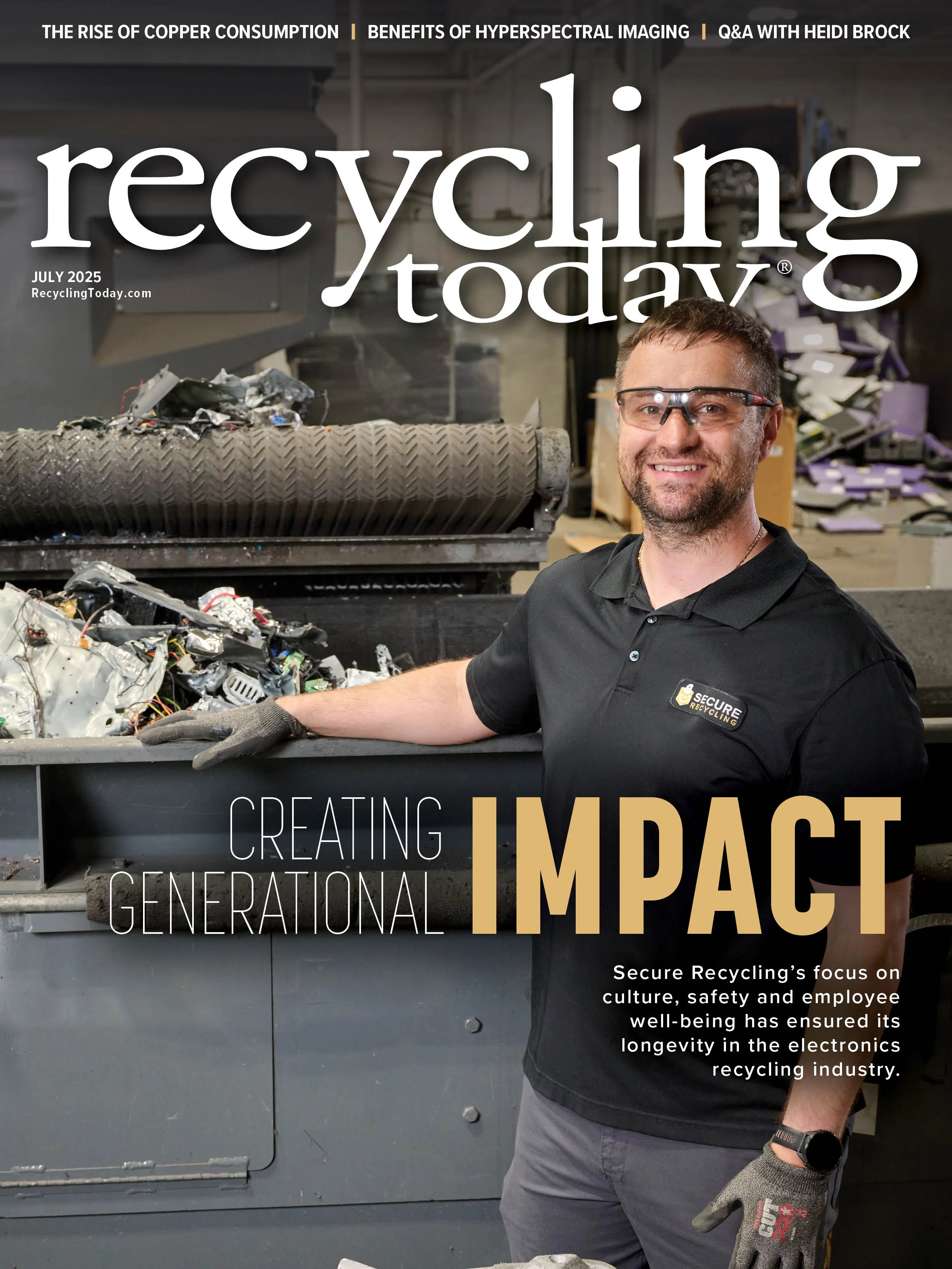
Explore the July 2025 Issue
Check out more from this issue and find your next story to read.
Latest from Recycling Today
- WM reports revenue, earnings growth in Q4 and full-year 2025
- Solarcycle’s Cedartown, Georgia, recycling facility opens
- Stadler equips Spanish MRF
- SSAB finishes 2025 with decreased revenue
- Vecoplan appoints CFO
- Aurubis raises full-year forecast
- Levitated Metals adds LIBS sorting technology
- Redwood Materials closes on $425M in Series E financing
